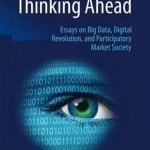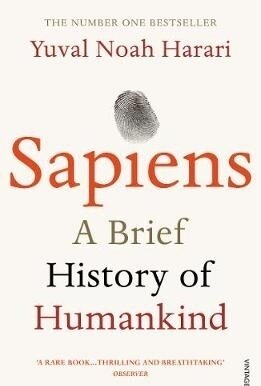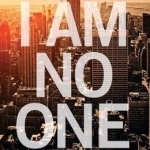Search

Madhyamam Weekly
News and Magazines & Newspapers
App
Madhyamam is India's first international newspaper-with Gulf Madhyamam, the largest circulated...
Heather Cranmer (2721 KP) created a post
Jul 11, 2021
Phil Leader (619 KP) rated Tails and Fixers in Books
Nov 26, 2019
This is an intriguing and interesting story that mixes a few ingredients together into a standard science fiction concept. The result is an engaging and moving story of survival and love.
The main protagonist is Floyd, an ex-military pilot. He is dying from kidney failure until he is given a lifeline - there is a new medical technique that can regenerate his kidneys using his own stem cells, but it will only work if he is put into 'hibernation' for 50 years. And oh, if you accept we will also be sending you on a 50 year trip to another solar system which has been broadcasting radio signals.
The book starts with Floyd waking at his destination and taking a crash course in the language of the alien planet's inhabitants. That is if there is anyone to speak to as 8 years before he arrived an asteroid struck the planet and left the surface desolated. Floyd must find if there any survivors and provide any assistance he can.
From the asteroid impact on, nothing goes to plan and Floyd must use his ingenuity just to survive himself, aided only by the ship's computer and whatever stores Earth thought to provide him with (the lack of beer being his main concern). Fortunately Floyd is very practical and able to improvise solutions to a number of problems as he struggles to survive in the hostile environment.
Once he has established a base he makes contact with the survivors of the asteroid impact, living in an underground bunker. There are humanoids with tails and also a genetically engineered slave race that do all the practical work - the Fixers.
Although they appear to be at least physically like Floyd their society is very alien indeed. Floyd immediately questions how their civilisation works and talks to a number of aliens - some he likes, others he dislikes enormously. Floyd must work out if he fits in and if so how.
The book certainly didn't go as I thought it would. Just as it seems the normal path will be followed in the narrative Kaluza takes a sharp turn and throws everything up in the air and sees how they land. This makes it an interesting read and stops it becoming bogged down in one mode or another. I found the end particularly - and unexpectedly - moving and it made a very suitable ending to what had gone before.
This is the best kind of science fiction. It uses the concept of the alien world to throw sharp relief on our understanding of subjects such as philosophy, genetics, engineering and sociology. There are some clever ideas (I particularly liked the way we got to see the results of Floyd's work beyond the end the novel in a very ingenious flash-forward sequence). The love story is well told and keeps the story balanced between the sometimes heavier going in the more profound themes without being too overworked.
Overall a book I enjoyed and wanted to keep coming back to. I will have to pick up another of the author's books sometime as he clearly has great ideas.
The main protagonist is Floyd, an ex-military pilot. He is dying from kidney failure until he is given a lifeline - there is a new medical technique that can regenerate his kidneys using his own stem cells, but it will only work if he is put into 'hibernation' for 50 years. And oh, if you accept we will also be sending you on a 50 year trip to another solar system which has been broadcasting radio signals.
The book starts with Floyd waking at his destination and taking a crash course in the language of the alien planet's inhabitants. That is if there is anyone to speak to as 8 years before he arrived an asteroid struck the planet and left the surface desolated. Floyd must find if there any survivors and provide any assistance he can.
From the asteroid impact on, nothing goes to plan and Floyd must use his ingenuity just to survive himself, aided only by the ship's computer and whatever stores Earth thought to provide him with (the lack of beer being his main concern). Fortunately Floyd is very practical and able to improvise solutions to a number of problems as he struggles to survive in the hostile environment.
Once he has established a base he makes contact with the survivors of the asteroid impact, living in an underground bunker. There are humanoids with tails and also a genetically engineered slave race that do all the practical work - the Fixers.
Although they appear to be at least physically like Floyd their society is very alien indeed. Floyd immediately questions how their civilisation works and talks to a number of aliens - some he likes, others he dislikes enormously. Floyd must work out if he fits in and if so how.
The book certainly didn't go as I thought it would. Just as it seems the normal path will be followed in the narrative Kaluza takes a sharp turn and throws everything up in the air and sees how they land. This makes it an interesting read and stops it becoming bogged down in one mode or another. I found the end particularly - and unexpectedly - moving and it made a very suitable ending to what had gone before.
This is the best kind of science fiction. It uses the concept of the alien world to throw sharp relief on our understanding of subjects such as philosophy, genetics, engineering and sociology. There are some clever ideas (I particularly liked the way we got to see the results of Floyd's work beyond the end the novel in a very ingenious flash-forward sequence). The love story is well told and keeps the story balanced between the sometimes heavier going in the more profound themes without being too overworked.
Overall a book I enjoyed and wanted to keep coming back to. I will have to pick up another of the author's books sometime as he clearly has great ideas.
BookblogbyCari (345 KP) rated Sapiens: A Brief History of Humankind in Books
Aug 5, 2018
This book was chosen to be the first book read and discussed in an online non-fiction book club I recently joined – and I’m glad we did choose this one!
The book is an overview of homo-sapiens as a species, and how we have changed over the ages, and what we have done, before finally touching on where we are going. As such the book is a cross-pollination of history, sociology, and economics.
As you may expect from a book with such a broad scope, there are some sweeping statements, and rather than being a neutral dispassionate account, Harari makes his opinions very evident. However rather than being irritating, I feel this makes for a more entertaining read.
The book begins by introducing the theme of homo-sapiens in the context of the presence of the other human species that used to exist. He then goes on to describe the cognitive and agricultural revolutions. Then it’s the establishment of patriarchal social hierarchies across the world, largely based on historical conventions. Next Harari states that the purpose of religion is to unify fragile societies with superhuman legitimacy.
Harari then moves on to the scientific revolution, describing how an admission of ignorance by Europeans, along with a desire to discover and conquer new lands was key to the movement.
The conversation moves swiftly then to economics, using the fact that a bank can loan £10 for every £1 it has, to argue that our economics is based on trust in the future. Harari states that a country’s credit rating is more important than its actual resources. Harari describes capitalism and consumerism as being 2 sides of the same coin with two commandments: rich must invest, rest of us must buy. Consumerism, he says, aims to convince people that indulgence is good and frugality is self-oppression.
Harari also argues that, now, instead of relying on local communities the individual relies on the market or the state. Parental authority no longer sacred, he says, and state intervenes. And so when Harari asks if we are any happier now than when we were hunter-gatherers, he argues that our rise of wealth is offset by the disintegration of community life.
Harari also speaks of ecological degradation and our tendency to treat other species as a means to an end, for example, the farming of cow's and chickens has cut years off the lives of both, since they are killed as soon as they reach their maximum weight.
In the final chapter, Harari speculates on the future of mankind. With improvements in medical knowledge comes new ethical conundrums, he says. How will we handle the options of genetic engineering? What will the advent of artificial intelligence mean for humanity?
In my book club, we found that the book generated a lot of talking points. What would the world be like now, had the other species of humans survived? Why have so many cultures across history and the world had patriarchal hierarchies? Can societies improve over time, or is one style better than another? Can communism be considered a religion? Are human rights really just a figment of our collective imagination?
Whilst not everyone in my book club enjoyed the book equally, I would say that it’s as enlightening as it is thought provoking. By the end, it was hard to argue with the author's conclusion that homo-sapiens are like dissatisfied and irresponsible gods.
The book is an overview of homo-sapiens as a species, and how we have changed over the ages, and what we have done, before finally touching on where we are going. As such the book is a cross-pollination of history, sociology, and economics.
As you may expect from a book with such a broad scope, there are some sweeping statements, and rather than being a neutral dispassionate account, Harari makes his opinions very evident. However rather than being irritating, I feel this makes for a more entertaining read.
The book begins by introducing the theme of homo-sapiens in the context of the presence of the other human species that used to exist. He then goes on to describe the cognitive and agricultural revolutions. Then it’s the establishment of patriarchal social hierarchies across the world, largely based on historical conventions. Next Harari states that the purpose of religion is to unify fragile societies with superhuman legitimacy.
Harari then moves on to the scientific revolution, describing how an admission of ignorance by Europeans, along with a desire to discover and conquer new lands was key to the movement.
The conversation moves swiftly then to economics, using the fact that a bank can loan £10 for every £1 it has, to argue that our economics is based on trust in the future. Harari states that a country’s credit rating is more important than its actual resources. Harari describes capitalism and consumerism as being 2 sides of the same coin with two commandments: rich must invest, rest of us must buy. Consumerism, he says, aims to convince people that indulgence is good and frugality is self-oppression.
Harari also argues that, now, instead of relying on local communities the individual relies on the market or the state. Parental authority no longer sacred, he says, and state intervenes. And so when Harari asks if we are any happier now than when we were hunter-gatherers, he argues that our rise of wealth is offset by the disintegration of community life.
Harari also speaks of ecological degradation and our tendency to treat other species as a means to an end, for example, the farming of cow's and chickens has cut years off the lives of both, since they are killed as soon as they reach their maximum weight.
In the final chapter, Harari speculates on the future of mankind. With improvements in medical knowledge comes new ethical conundrums, he says. How will we handle the options of genetic engineering? What will the advent of artificial intelligence mean for humanity?
In my book club, we found that the book generated a lot of talking points. What would the world be like now, had the other species of humans survived? Why have so many cultures across history and the world had patriarchal hierarchies? Can societies improve over time, or is one style better than another? Can communism be considered a religion? Are human rights really just a figment of our collective imagination?
Whilst not everyone in my book club enjoyed the book equally, I would say that it’s as enlightening as it is thought provoking. By the end, it was hard to argue with the author's conclusion that homo-sapiens are like dissatisfied and irresponsible gods.

Thinking Ahead - Essays on Big Data, Digital Revolution, and Participatory Market Society
Book
The rapidly progressing digital revolution is now touching the foundations of the governance of...
Mayhawke (97 KP) rated I am No One in Books
Feb 13, 2018
Intriguing but ultimately disappointing
Written in the first person I Am No One is the account of recent events in the life of the fictional NY academic, Jeremy O'Keefe. O'Keefe, ironically an expert in surveillance, finds himself the subject of apparent scrutiny by unknown observers, a discovery that propels him into paranoia and pushes him to the boundaries of sanity. As the story is unpacked, page by page, it becomes clear that O'Keefe's paranoia is not unfounded, and that his initial confusion as to why anyone would want to bother observing the behaviour of a mundane and only moderately successful Professor actually belies a deeper understanding of the cause and his actions that precipitated it.
O'Keefe is a difficult character to really sympathise with. Whilst his ideology is admirably egalitarian he falls into that bracket of slightly stuffy, middle-class liberals who take themselves too seriously and fail to practise what they preach. In fairness to O'Keefe he largely has the grace and self-awareness to question the rationality of his fears and accidental moments of prejudice (though he is of the very typical male Liberal variety that doesn't seem to recognise the contradiction of professing himself feminist whilst watching porn): slightly pompous, slightly too much self-regard slightly too much sense of victimhood, he is not unlikeable just a bit of a non-entity. Whilst this is clearly intentional it makes his narrative stodgy. Not unreadable, but at the same time easy to put down for a week whilst a more engaging book is read. This is either a spectacularly adept piece of characterisation or an unfortunate reflection of the author, Patrick Flanery. I do hope it is the writing because if not then all the peculiar, inaccurate and unlikely observations made by O'Keefe onbehalf of his character regarding differences between the British and Americans are likely also Flanery's:. For example the breath-taking assertion that socio-economic failure is treated more harshly in the UK than in the US, when any basic knowledge of sociology in the two countries shows that the criteria for failure is a) much broader in the US and b) responded to far more harshly, e.g.: "if you don't earn enough from your three jobs to afford medical insurance to pay for your cancer treatment, you clearly haven't worked hard enough. The fault is yours , you are a failure and the punishment is premature death.". It is also difficult to accept that Flanery is regularly treated with distrust and dislike by bank cashiers for his Irish name. Quite aside from anything else most bank cashiers in this country now aren't old enough to remember the Irish troubles, and the bigots-for-bigotry's-sake have long since transferred their angst from the Irish to the Poles and the Muslims.
Flanery is also an academic, something that is abundantly obvious from the highly structured writing method he employs in this book. The reader is left with the impression that where other novelists write books to be read as stories Flanery has written a text with an eye to future deconstruction by English Lit students. That is not necessarily a bad thing, of course, but occasionally one wishes he could have been a little less concerned with construction in the minutiae and more concerned with crafting a story with a complete beginning, middle and end. And therein lies one of the greatest failings of this book: it has no real conclusion. Questions are raised that go unanswered. In particular, there are issues with characters, whose true identity may never be elaborated upon or, in the case of his girlfriend who makes a sudden, poorly explained behavioural volte-face that is entirely out of character but provides Flanery with a device to enable his protagonist take the critical closing step to the tale.
It seems that Flanery has written this book as a parable on the dangers of unfettered digital surveillance: how easy it is for those who wish to to access all our personal data and how very quickly and efficiently lives can be subverted. Whilst this may be a revelation to a few it has to be said that there is nothing revealed in this book about the scope and methods of data collection that anyone who has even a small amount of technical savvy won't already know, which rather undermines it as an expose. The book also attempts to portray how easy it is to suddenly and unintentionally find oneself on the wrong side of the law. Unfortunately in this story the actions which purport to have landed O'Keefe in possible criminality are so ridiculous and far-fetched that only the most paranoid would ever see an offence in them. Contrary to highlighting the ease with which the well intentioned can unwittingly find themselves in need of lawyers it suggests that all the peripheral characters are actually far more paranoid and delusional than O'Keefe will ever be.
All that aside this was an intriguing and mildly engaging story. Largely well-written but let down by a an unsatisfactory conclusion and a failure to induce the kind of fear that was intended.
O'Keefe is a difficult character to really sympathise with. Whilst his ideology is admirably egalitarian he falls into that bracket of slightly stuffy, middle-class liberals who take themselves too seriously and fail to practise what they preach. In fairness to O'Keefe he largely has the grace and self-awareness to question the rationality of his fears and accidental moments of prejudice (though he is of the very typical male Liberal variety that doesn't seem to recognise the contradiction of professing himself feminist whilst watching porn): slightly pompous, slightly too much self-regard slightly too much sense of victimhood, he is not unlikeable just a bit of a non-entity. Whilst this is clearly intentional it makes his narrative stodgy. Not unreadable, but at the same time easy to put down for a week whilst a more engaging book is read. This is either a spectacularly adept piece of characterisation or an unfortunate reflection of the author, Patrick Flanery. I do hope it is the writing because if not then all the peculiar, inaccurate and unlikely observations made by O'Keefe onbehalf of his character regarding differences between the British and Americans are likely also Flanery's:. For example the breath-taking assertion that socio-economic failure is treated more harshly in the UK than in the US, when any basic knowledge of sociology in the two countries shows that the criteria for failure is a) much broader in the US and b) responded to far more harshly, e.g.: "if you don't earn enough from your three jobs to afford medical insurance to pay for your cancer treatment, you clearly haven't worked hard enough. The fault is yours , you are a failure and the punishment is premature death.". It is also difficult to accept that Flanery is regularly treated with distrust and dislike by bank cashiers for his Irish name. Quite aside from anything else most bank cashiers in this country now aren't old enough to remember the Irish troubles, and the bigots-for-bigotry's-sake have long since transferred their angst from the Irish to the Poles and the Muslims.
Flanery is also an academic, something that is abundantly obvious from the highly structured writing method he employs in this book. The reader is left with the impression that where other novelists write books to be read as stories Flanery has written a text with an eye to future deconstruction by English Lit students. That is not necessarily a bad thing, of course, but occasionally one wishes he could have been a little less concerned with construction in the minutiae and more concerned with crafting a story with a complete beginning, middle and end. And therein lies one of the greatest failings of this book: it has no real conclusion. Questions are raised that go unanswered. In particular, there are issues with characters, whose true identity may never be elaborated upon or, in the case of his girlfriend who makes a sudden, poorly explained behavioural volte-face that is entirely out of character but provides Flanery with a device to enable his protagonist take the critical closing step to the tale.
It seems that Flanery has written this book as a parable on the dangers of unfettered digital surveillance: how easy it is for those who wish to to access all our personal data and how very quickly and efficiently lives can be subverted. Whilst this may be a revelation to a few it has to be said that there is nothing revealed in this book about the scope and methods of data collection that anyone who has even a small amount of technical savvy won't already know, which rather undermines it as an expose. The book also attempts to portray how easy it is to suddenly and unintentionally find oneself on the wrong side of the law. Unfortunately in this story the actions which purport to have landed O'Keefe in possible criminality are so ridiculous and far-fetched that only the most paranoid would ever see an offence in them. Contrary to highlighting the ease with which the well intentioned can unwittingly find themselves in need of lawyers it suggests that all the peripheral characters are actually far more paranoid and delusional than O'Keefe will ever be.
All that aside this was an intriguing and mildly engaging story. Largely well-written but let down by a an unsatisfactory conclusion and a failure to induce the kind of fear that was intended.


